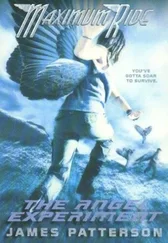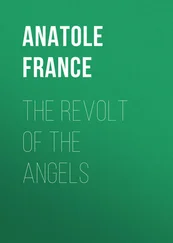Yukio Mishima - The Decay Of The Angel
Здесь есть возможность читать онлайн «Yukio Mishima - The Decay Of The Angel» весь текст электронной книги совершенно бесплатно (целиком полную версию без сокращений). В некоторых случаях можно слушать аудио, скачать через торрент в формате fb2 и присутствует краткое содержание. Год выпуска: 2010, Издательство: CCV Digital, Жанр: Старинная литература, на английском языке. Описание произведения, (предисловие) а так же отзывы посетителей доступны на портале библиотеки ЛибКат.
- Название:The Decay Of The Angel
- Автор:
- Издательство:CCV Digital
- Жанр:
- Год:2010
- ISBN:нет данных
- Рейтинг книги:5 / 5. Голосов: 1
-
Избранное:Добавить в избранное
- Отзывы:
-
Ваша оценка:
- 100
- 1
- 2
- 3
- 4
- 5
The Decay Of The Angel: краткое содержание, описание и аннотация
Предлагаем к чтению аннотацию, описание, краткое содержание или предисловие (зависит от того, что написал сам автор книги «The Decay Of The Angel»). Если вы не нашли необходимую информацию о книге — напишите в комментариях, мы постараемся отыскать её.
The Decay Of The Angel — читать онлайн бесплатно полную книгу (весь текст) целиком
Ниже представлен текст книги, разбитый по страницам. Система сохранения места последней прочитанной страницы, позволяет с удобством читать онлайн бесплатно книгу «The Decay Of The Angel», без необходимости каждый раз заново искать на чём Вы остановились. Поставьте закладку, и сможете в любой момент перейти на страницу, на которой закончили чтение.
Интервал:
Закладка:
The Russian women had been in Japan for several decades; and it was a source of surprise to Honda that their only Japanese consisted of vulgar pidgin uttered in very loud voices. They sat down to cards immediately after lunch. The Russians promptly retouched their faces with rouge and lipstick.
Since the death of their husbands, also White Russians, they had continued to operate a family enterprise manufacturing foreign cosmetics. They were very niggardly, but they did not mind spending money on themselves. Taken with persistent diarrhea on a trip to Osaka and wanting to avoid the embarrassment of countless trips to the lavatory on the way back, they had chartered a plane, and on their return to Tokyo been taken to a hospital where they were known.
The old woman, her hair dyed brown, was wearing a turquoise pullover and a spangled cardigan, and her pearl necklace was too heavy. She was bent, but the fingers that took up the compact and lipstick were still powerful, so powerful that the wrinkled lower lip was pulled to one side. She was a fierce battler at the canasta table.
Her favorite subject was death. Her last canasta party, she was sure. By the next one she would be dead. She would await protests when she had made her declaration.
The intricate design of the cards scattered over Italian parquetry quite dazzled the eye; and on her powerful finger an amber-colored cat’s eye bobbed over the lacquer faces like a fisherman’s float. Crimson fingertips on splotched hands like the belly of a shark that had been stranded for some days on a beach rapped nervously at the table.
With a graceful fanning of cards, Keiko expertly shuffled the two decks. The decks were left face down after each player had received eleven cards, and a single card was left face up beside them. It was the three of diamonds, a sort of lunatic freshness in its red. Honda caught his breath. He saw three moles, stained in blood.
The special sounds of a card game: laughter as of a table fountain, sighs, little cries of astonishment. It was a zone where there need be no inhibitions in such matters as chuckling, uncertainty and unease, the craftiness of old age. It was like night in a zoo of emotions. Cries and laughter came from all the pens and all the cages.
“It’s your turn.”
“No, it’s yours.”
“Doesn’t anyone have a canasta yet?”
“But I’ll be scolded if I play out of turn.”
“She’s a very good dancer. Go-go too.”
“I’ve never been to a go-go hall.”
“I have. Just once. Like an insane asylum. Have a look at an African dance some time. It’s the same thing.”
“I like to tango.”
“I like the old dances.”
“The waltz and the tango.”
“The old dances are so graceful. These new ones are like spooks. The men and the women all dressed the same. And the colors. Like a nicky—you say?”
“A nicky?”
“You know. All sorts of colors in the sky.”
“Oh, a niji. A rainbow.”
“Yes. A niji , that’s what it’s like. Men and women, all sorts of colors.”
“But a rainbow is beautiful.”
“Rainbows will soon be animals too, at this rate. Rainbow animals.”
“Rainbow animals.”
“I haven’t much longer. I want just one more canasta before I die. That’s all I want, my very last wish. My last canasta, Mrs. Hisamatsu.”
“Don’t say it again, Galina.”
This curious exchange made Honda, whose hand came to nothing at all, think of waking up in the morning.
What he had seen first each morning since turning seventy was the face of death. Sensing the arrival of dawn in the faint light at the paper doors, he would be awakened by a strangling accumulation of mucus. During the night mucus accumulated into a red-black mass and nurtured its own nightmarish stiffness. Someday someone would perform for him the service of taking it between chopsticks and cleanly lifting it away.
The lump of mucus, like bêche-de-mer, would inform Honda afresh each morning that he was still alive. And with the awareness of life it would bring a fear of death.
Honda was in the habit of giving himself over to a flow of dreams each morning. Like a cow, he would ruminate.
The dreams were bright and sparkling, much fuller of the happiness of life than life itself. Gradually dreams of boyhood and youth came to predominate. In a dream he would taste the hotcakes his mother had made one snowy morning.
Why should a meaningless little episode be so insistent? No doubt precisely because it was a meaningless little episode remembered hundreds of times over a half century. Honda could not himself understand the hold on his memory.
The last traces of the old breakfast room had probably disappeared, so often had the Hongō house been rebuilt. A fifth-year student in the secondary course at Peers, Honda had on his return from school—it would have been a Saturday—gone with a friend to call at a faculty house, and so proceeded homeward, hungry and without an umbrella.
He usually came in through the kitchen door, but today he went around to look at the snow in the garden. The matting to protect the pines from the winter cold was flecked with white. The stone lanterns were capped with white brocade. His shoes squeaking across the snow, he caught a distant glimpse of his mother’s skirt at the knee-high window of the breakfast room. He was at home.
“You must be hungry. Come on in, but brush the snow off first.”
His mother pulled her kimono tight together. Taking off his coat, Honda slipped into the kotatsu . As if she were trying to remember something, his mother blew on the embers. She brushed a wisp of hair up away from the ashes.
“Wait just a minute,” she said between breaths. “I have something good for you.”
Placing a small pan on the embers, she rubbed it with greased paper. She poured neat circles of batter on the hot grease.
It was the taste of those hotcakes that Honda so often remembered in dreams: the taste of honey and melted butter that snowy afternoon. He could remember nothing more delicious.
But why should that one detail have become the germ of a memory he was to carry through life? There could be no doubt that this unwonted fit of gentleness on the part of his severe mother had added to the enjoyment. There was a strange sadness entangled with the memory: the profile of his mother as she blew on the embers; the glow on her cheeks as they lighted up, with each breath, embers that were not permitted to warm the parlor of this frugal house, dusky even in the light from the snow; the play of light and darkness, shadows coming over his mother’s cheeks each time she took a breath. And perhaps concealed in the intensity of her motions and the rare display of gentleness was a pain that she had refused all her life to give voice to. Perhaps it had come transparently and immediately across to him, in the full round flavor of the hotcakes, through the untrained young palate, in the sense of affection. Only thus could the sadness find explanation.
Sixty years had gone by, as an instant. Something came over him to drive away his consciousness of old age, a sort of pleading, as if he had buried his face in her warm bosom.
Something, running through sixty years in a taste of hot-cakes on a snowy day, something that brought knowledge to him, dependent not on an awareness of life but rather on a distant, momentary happiness, destroying the darkness of life at least for that moment, as a light far out on a dark moor destroys an infinity of darkness.
A moment. Honda could feel that nothing at all had happened in the interval separating the Honda of sixteen from the Honda of seventy-six. An instant, time for a child in a game of hopscotch to hop over a ditch.
He had seen often enough how the Dream Diary kept so faithfully by Kiyoaki had come true. He had had evidence enough of the superiority of dreams to waking. But he had not thought that his own life would ever be so filled with dreams. There was happiness in the dreams that poured over him like floods over Thai paddy lands; but they had only nostalgia for a past that would not return to set against the delicious fragrance of Kiyoaki’s dreams. A young man who had not dreamed had become an old man who dreamed occasionally, and that was all. His dreams had little to do with symbol or with imagination.
Читать дальшеИнтервал:
Закладка:
Похожие книги на «The Decay Of The Angel»
Представляем Вашему вниманию похожие книги на «The Decay Of The Angel» списком для выбора. Мы отобрали схожую по названию и смыслу литературу в надежде предоставить читателям больше вариантов отыскать новые, интересные, ещё непрочитанные произведения.
Обсуждение, отзывы о книге «The Decay Of The Angel» и просто собственные мнения читателей. Оставьте ваши комментарии, напишите, что Вы думаете о произведении, его смысле или главных героях. Укажите что конкретно понравилось, а что нет, и почему Вы так считаете.











